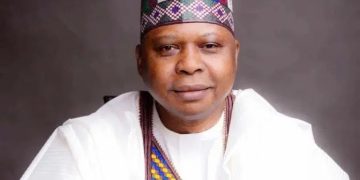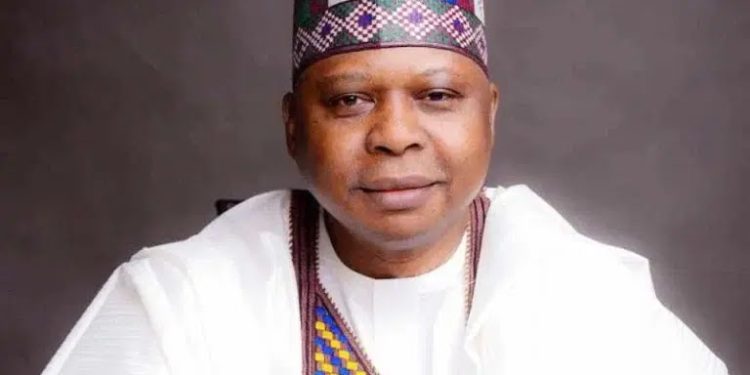Kabiru Tanimu Turaki, SAN, has been elected the National Chairman of the Peoples Democratic Party following a tense and politically charged convention held in Ibadan. His emergence concluded months of courtroom battles, internal disagreements, and leadership shifts as the party works to strengthen its structure ahead of the 2027 general elections.
The convention, hosted at the Lekan Salami Sports Complex, went ahead despite attempts to stop it through legal injunctions. Party leaders and delegates described the event as proof that the PDP was determined to restore its influence despite internal divides.
In the hours leading up to the convention, the party survived two separate court rulings seeking to halt the exercise. Speakers throughout the day repeatedly referenced these legal challenges, framing the start of the convention as a significant moral victory for the party.
Despite the energetic atmosphere, frustration arose among delegates over the absence of two governors—Osun’s Ademola Adeleke and Taraba’s Agbu Kefas. Their posters were torn down by members who insisted that key leaders should not miss such a crucial gathering.
Oyo State Governor Seyi Makinde, who welcomed participants, assured members that the convention marked a new phase for the PDP. Mixing humour with seriousness, he encouraged delegates to enjoy Ibadan’s hospitality while focusing on the party’s renewal.
Governor Ahmadu Umaru Fintiri, who chaired the organising committee, delivered a more solemn address, reminding members that many Nigerians were looking to the PDP for leadership. He urged the party to return to its founding values.
Board of Trustees Chairman, Senator Adolphus Wabara, commended the turnout and said the participation demonstrated that the PDP remained strong despite recent turbulence.
Before voting commenced, the convention confirmed Umar Damagum as the substantive National Chairman—ending months of uncertainty about the party’s leadership. With that settled, elections for other national positions proceeded.
When the results were announced, Turaki won with 1,516 votes, sparking loud celebrations across the venue. Delegates danced, sang, and beat drums as they welcomed what many described as a fresh start. Some candidates withdrew ahead of time, allowing unopposed victories, including Solarin Adekunle, who became Deputy National Organising Secretary.
Turaki’s victory was widely anticipated. Known for his neutrality in the party’s internal disputes, he is seen as a bridge-builder capable of restoring trust. His reputation as a calm, principled legal practitioner also made him appealing to many governors and senior party figures.
Regional considerations and the withdrawal of rivals further strengthened the path to his election. With 2,745 accredited delegates—even with some state chapters dissolved—Turaki’s mandate reflects broad national support.
A major decision of the convention was the dissolution of party structures at ward, local government, and state levels in Rivers, Imo, Enugu, Akwa Ibom, and Abia.
Political observers say Turaki’s emergence represents a push for stability. His immediate task will be reconciling aggrieved members, rebuilding structures, addressing controversies surrounding recent expulsions, and preparing the PDP for upcoming national elections. He is also expected to work toward restoring public confidence in the party.
In his acceptance speech, Turaki declared that the era of impunity within the party had ended. He pledged to strengthen discipline, empower grassroots members, and unveil clear guiding principles as the new executive begins work.
He stressed that the PDP remains the only major party that has retained its original identity since inception, noting that its endurance is tied to its connection with ordinary Nigerians.
Meanwhile, the South-West PDP praised Governor Makinde for defending the party from forces it claimed were attempting to destabilise it. The zone’s spokesperson, Chief Sanya Atofarati, said the successful convention renewed public faith in the PDP while criticising the ruling APC for divisive governance.
Former presidential candidate Gbenga Olawepo-Hashim also reacted, urging the party to prioritise reconciliation. He warned that drifting from the founding principles of dialogue, inclusion, and unity could jeopardise both the party’s future and Nigeria’s democratic stability. He advised the new leadership to focus on rebuilding rather than deepening divisions.















